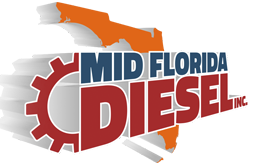Calendar
July 2024 M T W T F S S 1 2 3 4 5 6 7 8 9 10 11 12 13 14 15 16 17 18 19 20 21 22 23 24 25 26 27 28 29 30 31 Search
-
Recent Posts
- Revving Up Efficiency: Optimizing Diesel Engines For Superior Energy Use
- Common Diesel Generator Repair Issues And How To Solve Them
- Selecting The Right Parts For Diesel Truck Repairs
- The Importance Of Regular Oil Changes In Diesel Generators
- Essential Advice For Selecting A Diesel Truck Repair Mechanic
Categories
- Alternative Energy
- Blue Start Power Systems
- Cars
- Caterpillar
- Diesel Engine
- Diesel Generator
- Electicity
- Energy
- Energy efficiency
- Fossil Fuel
- Gas Generator
- Generator Repair
- Generators
- hurricane season
- Hybrid technology
- Hydrogen Fuel Cells
- Jaguar
- John Deere
- Maintenance
- Mid Florida Diesel
- New Technology
- News
- Northern Lights Generators
- Power generation
- Products
- Project
- Reconditioning Services
- Renewable Energy
- Repair
- RV
- RV Repair
- Services
- Solar Power
- Tips
- Track Repair
- Uncategorized
- Volvo Penta
- Yanmar
Tag Archives: Electric Engine
The American Luxury Diesel
If you have ever yearned for an American made luxury car which had a diesel engine, then you may be surprised to learn that it almost happened- back in the 1970s. With the oil shock of the era, carmakers were Continue reading
Posted in Cars, Diesel Engine, New Technology
Tagged Buicks, Cadillacs, Diesel Engine, Electric Engine, Gas engines
Comments Off on The American Luxury Diesel





